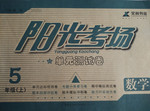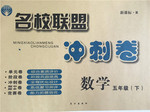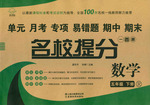题目内容
These achievements_______ without the contribution of Qian Xuesen, a key leader of the New China's nuclear, missile and so on.
A.would have been unthinkable B.would not be unthinkable
C.would be unthinkable D.would not have been unthinkable
A
解析:
(本题考查虚拟语气。题干句子中“without the contribution of Qian Xuesen”表示与过去事实相反的虚拟语气,谓语动词要用“would(not)}lave done'’。)

练习册系列答案
 阳光考场单元测试卷系列答案
阳光考场单元测试卷系列答案 名校联盟冲刺卷系列答案
名校联盟冲刺卷系列答案 名校提分一卷通系列答案
名校提分一卷通系列答案
相关题目